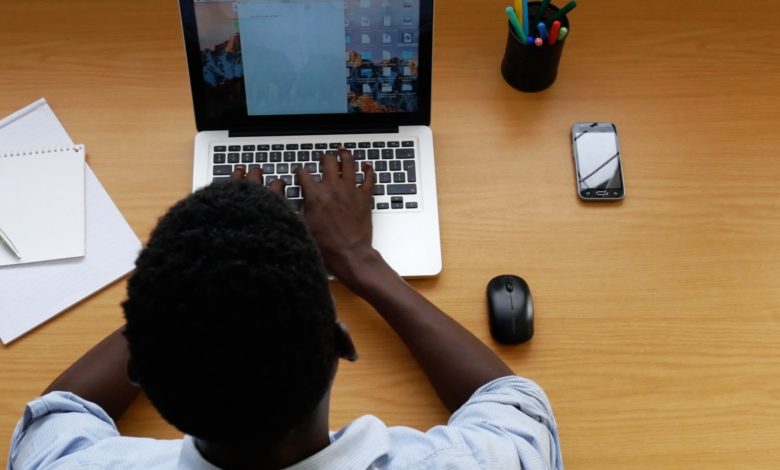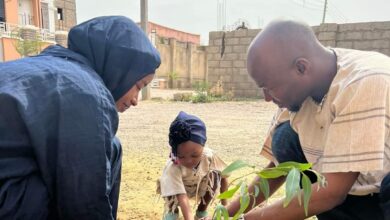COVID-19 Impact Manifests, Oyo State Conducts Internet-Based Recruitment Test

The reality of the COVID-19 pandemic has begun to manifest in Nigeria’s job recruitment process with Oyo State government, Southwest Nigeria, organising its maiden internet-based job interview for prospective teachers for secondary schools.
The Computer-based test (CBT), which featured 441 first-class graduates from different fields applied, began on Tuesday and would run for 10 days with candidates from all parts of the state participating in Ibadan under COVID-19 guidelines.
The State Governor, Mr Seyi Makinde, had approved the recruitment of 7,000 teachers, 2,000 non-teaching staff, and 1,600 night-guards into post-primary school by the Teaching Service Commission (TESCOM).
When the government invited applications, 156,000 persons applied for the 10,600 vacancies.
Dr Muyiwa Bamgbose, consultant for Oyo State Post-Primary School Teaching Service Commission (TESCOM), the organisers of the test, said the idea of conducting a CBT for the job seekers was that anyone engaged in any serious enterprise in modern times must be computer literate.
“They must be computer literate, this is 2020. I think the average person who is doing something formal or official must be computer literate. It is now like biro and paper, it is a basic thing.
“There are issues that are not uncommon or unusual. Some people are struggling with the computer. And today we are conducting the examination for those who will be teaching computer science and physics, so we expect them to be the guru themselves.
“We have seen someone who is going to teach computer science but cannot scroll, this is expected, there are people around to guide them not really help them but guide them. I believe there is no problem,’’ Bamgbose said.
He said the use of CBT in Nigeria had come to stay, pointing out that “If we are doing JAMB examination, University Tertiary Matriculation Examination, with computers, that is why those who are teaching these students have no excuses.
The Chairman, Oyo State TESCON, Pastor Akinade Alamu, said the government was determined reinvigorate the education system,.
“We are happy to have the best applicants, especially the first-class graduates taking part in this exercise.
“The government of Oyo State is desirous of lifting education to a higher level so that we will have as much as the best among our applicants.
“We want to bring back the pride attached to teaching, it is the best profession and if we have the best hands joining, it is a good omen.
“The scores at the interview level will place applicants higher, we have a mark for NCE, we have different marks for graduates and there is a higher mark for first class, this shows that the whole thing will be based on merit.
“The present government is concerned with the uplifting of education in the state, this is why we decided that before we appoint anybody as a teacher, such a person must be qualified, competent and ready to work in line with the passion of the governor for education.
“I believe this will raise the standard of education in the state and will catapult the performance rating of our state to the first three.”
Mr Tojuade Adedoyin, the Oyo State Chairman, Nigerian Union of Teachers, said the CBT test was the first of its kind and showed the government’s desire to promote professionalism in public schools.
He said the system would allow for the recruitment of the best among the candidates unlike the allotment of positions to political office holders that was the case in the past.
Some candidates commended the state government for its preparedness and adherence to COVID-19 safety protocols in conducting the test.
A candidate, Esther Adeoje, said the exercise was in four parts – general studies, education, physics and mathematics.
“At one point the network had issues but we were able to overcome it. The government tried, they did well and we did not really have any challenge,” she said.
In Nigeria, children in public schools and their teachers do not have advantage of internet-based education unlike their contemporaries in private institutions.
With the closure of schools because of the COVID-19 pandemic since March, while children in private schools at all levels of education have continued to receive instructions virtually unlike their counterparts in public schools and their teachers as well as institutions which lack the resources to cope.
Support Our Journalism
There are millions of ordinary people affected by conflict in Africa whose stories are missing in the mainstream media. HumAngle is determined to tell those challenging and under-reported stories, hoping that the people impacted by these conflicts will find the safety and security they deserve.
To ensure that we continue to provide public service coverage, we have a small favour to ask you. We want you to be part of our journalistic endeavour by contributing a token to us.
Your donation will further promote a robust, free, and independent media.
Donate Here




